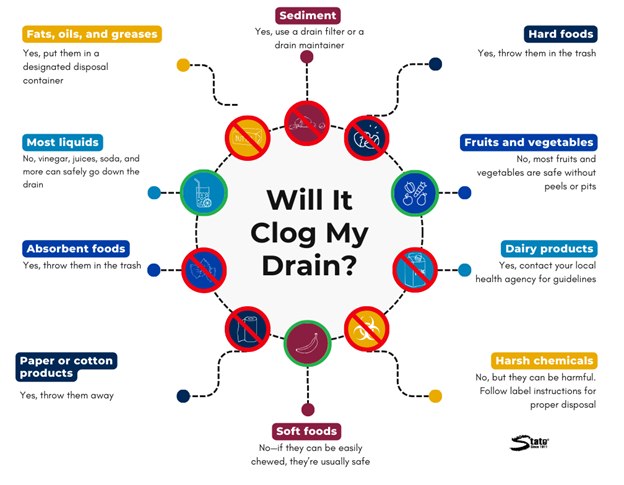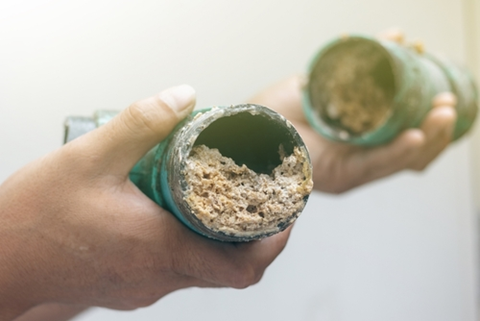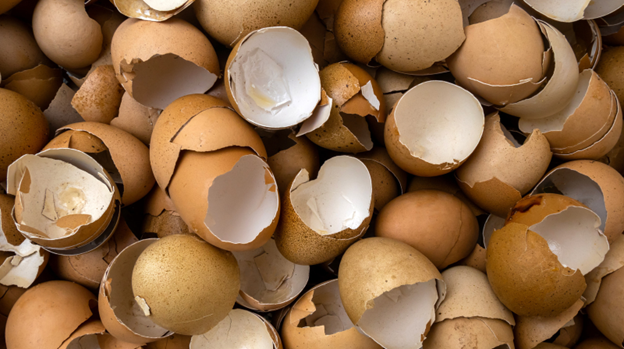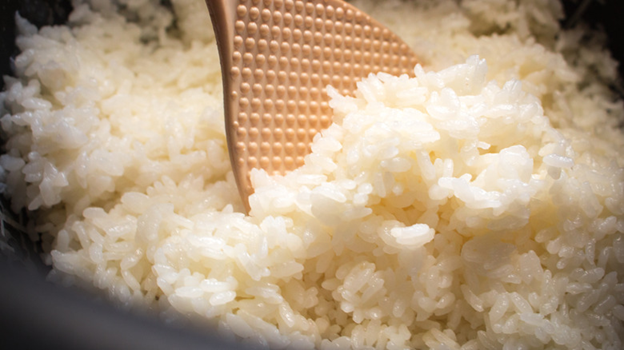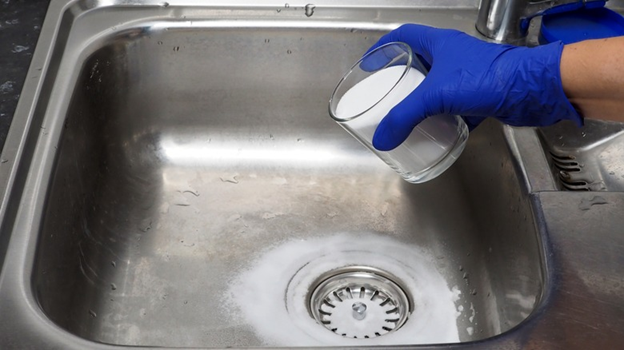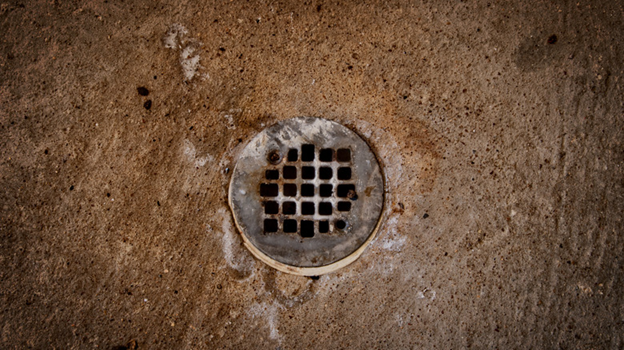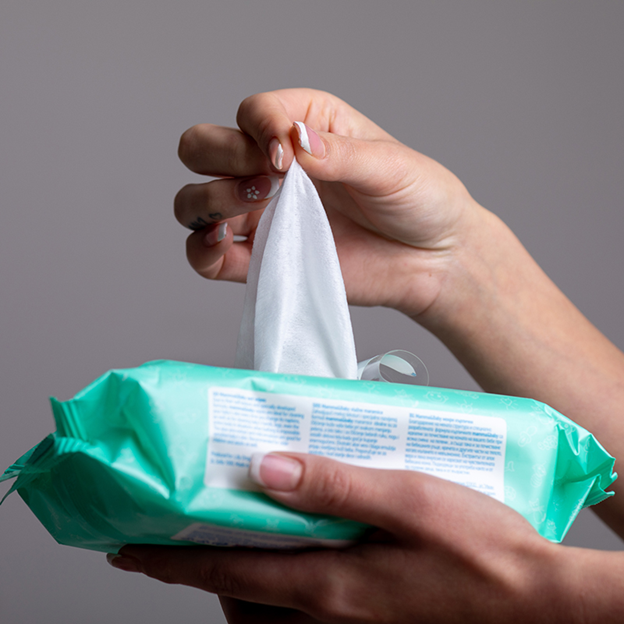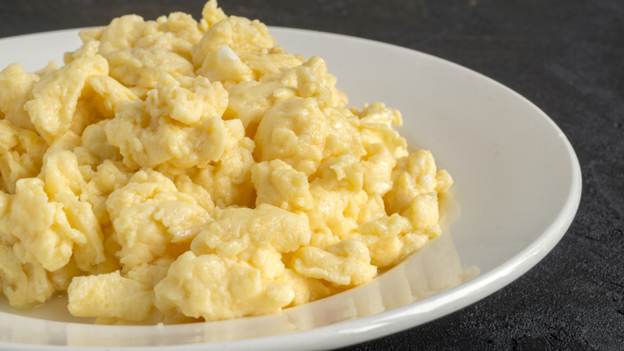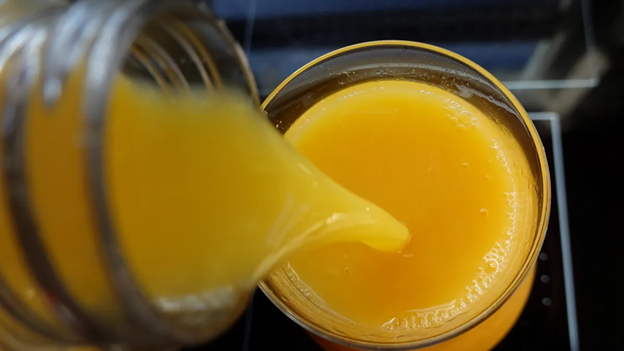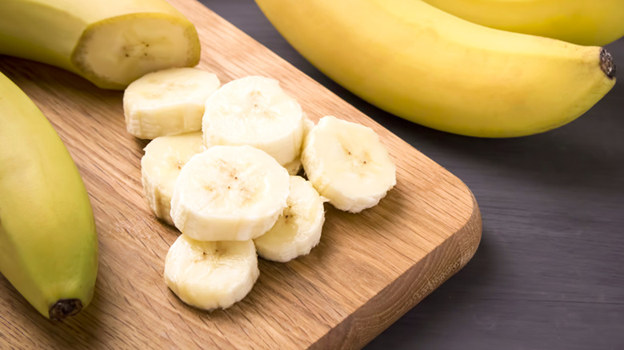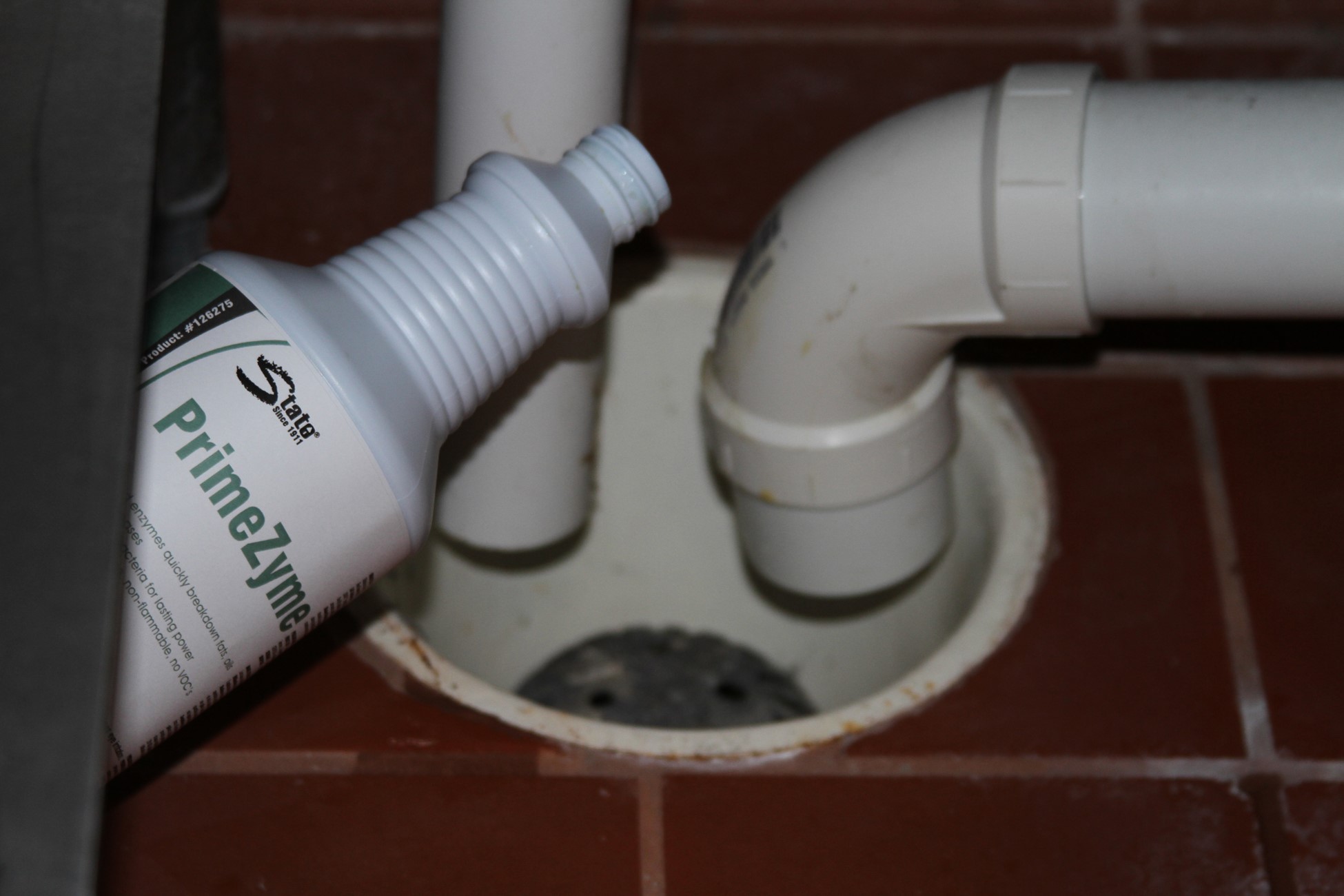What Causes Clogs in a Commercial Drain?
What Causes Clogs in a Commercial Drain?
Drain clogs probably aren’t something you think about every day, but when you’re face-to-face with a backup that’s shut down part of your facility, drain clogs become more of a concern. You know that ideally, nothing other than water would go down the sink, but in a commercial setting with a large number of people in and out of your building, this seems unlikely.
This begs the question: which substances pose the most risk of clogging your drains, and how can you prevent this?
At State Chemical, we manufacture and distribute chemical solutions for various applications, including drain care. We know that properly functioning drains are vital to your facility’s operation, so being informed about appropriate care is crucial.
To help your facility avoid drain clogs, we will explain what substances cause clogs, which substances are “safe” for drains, and how to prevent drain clogs altogether. After reading, you’ll know what items to avoid draining and how to prevent drain clogs more effectively.
What Will Clog a Commercial Drain?
The worst substances for your drains are those that lead to buildup in the pipes. These items may initially enter the drain in small quantities, but over time, they congeal, causing a much larger problem. So, what substances does this include?
Fats, Oils, and Greases (FOGs) Cause Drain Clogs
When someone says not to put grease down your drain, you likely already know that—perhaps thinking of collecting bacon grease in an old can. But is your facility also avoiding drainage of soups, mayonnaise, and ice cream? FOGs are present in more substances than we may realize, and they are a prime culprit for drain clogs.
Imagine you pour melted butter down your restaurant drain. It runs down the pipes initially, but it hardens as it travels down, congealing to the sides of the pipes. Now, you have buildup.
Imagine doing this regularly—with melted butter, with canola oil, with salad dressing, with peanut butter. The buildup in your pipes will thicken considerably, making it hard for water to run down and easy for other objects (e.g., food debris) to get caught in the gunk. After a while, your drains will back up, and your kitchen will be out of commission until you can get a plumber.
This may sound like a drastic example, but over time, this is what your pipes will look like if FOGs go down the drain. Usually, some amount of FOG drainage is unavoidable, but try to discard FOGs in a designated disposal container, from which you can have the FOGs collected and properly disposed of.
Hard Foods Will Clog Your Drain
Hard foods include eggshells, coffee grounds, seafood shells, and more—all of which also cause drain clogs.
Even if you have a garbage disposal, these items will not grind up easily, possibly causing damage to your garbage disposal, and the bits are prone to get stuck to congealed FOGs on the sides of the pipes. From there, blockage builds as other items get stuck on the combination of these hard foods and FOGs.
It’s a common misconception that if you have a garbage disposal, you can put almost anything down your sink, but this is not true. Garbage disposals can help to grind up bigger pieces of soft foods, but they can’t fully break down hard foods, leading to clogs.
Rather than putting hard foods down your drain, direct your staff to throw these items in the trash to avoid clogs.
Absorbent Foods Cause Drain Clogs
Absorbent foods like pasta, rice, and flour can also cause drain clogs. Think about it: if you dump rice down your drain and it settles at a curve in the pipes, what will happen when you run water? The same thing that happens when you put it in a pot: the rice will expand. The more it expands, the heavier and stickier it will get and the harder it will be to flush down your drain.
Anything that takes on water will likely gum up your pipes, so it’s best to throw these foods in the trash instead.
Don’t Put Dairy Products Down Your Drain
You should also avoid putting milk or dairy down the drain. Why? For one, the fats in dairy will cause buildup in your drain that can lead to clogs (after all, milk is considered a FOG). But dairy can also pose an environmental risk.
The bacteria that feed on spoiled dairy use up a high level of oxygen. When you put dairy down the drain, these bacteria take up more oxygen, meaning there is less for fish and other aquatic life. Too much dairy in the waterways can suffocate marine and freshwater creatures. It is such a concern that it is a punishable offense for businesses to pour milk down their drains in countries like the UK.
To properly dispose of dairy, throw it in the trash or reach out to your local trash and recycling service to see if they have any guidelines you should follow.
Sediment Can Clog Your Drain
Chances are that you’re not purposely pouring dirt down your drain. However, you have to think about what’s getting caught in “safe” substances you put in your drains.
For example, your cleaning crew might dump the mop bucket down a floor drain after mopping. This shouldn’t be a problem if it’s just water, a cleaning solution, or a disinfectant, but think about everything the mop might have picked up during use. Dirt, tiny rocks, and more will likely be going down your drain too, settling in the pipes with the potential to cause clogs over time.
It can be difficult to avoid sediment buildup. After all, so much of cleaning is about removing excess dirt. But there are ways to prevent this buildup.
You can put a filter in your drain to catch dirt and pebbles, for example, or use a drain maintainer specifically intended for treating sediment buildup. When sediment drainage is unavoidable, these are effective ways to prevent it from causing issues for your pipes.
Paper and Cotton Products Will Clog Your Drain
Have you ever seen flushable wipes on the shelves at a store? Although they make that claim, products like these should not go down your drain. Paper and cotton are other materials that absorb water, and if you flush them, they will block up your pipes, which will require severe intervention to clear.
Avoid putting paper towels, wipes, sanitary products, and packaging down your drain. These products can cause some of the worst clogs you’ll experience, so throw them in the trash instead.
The thing is, when you have different visitors coming in and out of your facility, this isn’t always easy to control. This makes it important to educate facility users on what can and can’t go down the drain, such as through educational posters. It’s not a guaranteed fix, but it can make a difference where you need it to.
What Can I Safely Put Down My Commercial Drain?
So, now you know what your facility should avoid putting down the drain if you want to prevent clogs. But that leaves the question: what is safe to put down the drain?
Soft Foods Can Usually Go Down the Drain
When you’re putting food down the drain, if it’s soft and easily chewed, it’s a good bet that it’ll easily pass down the drain (assuming it isn’t a FOG or absorbent food). For example, eggs without shells will easily go down the drain (especially if your facility has a garbage disposal) and shouldn’t cause clogs.
Most Liquids Can Go Down the Drain
Similarly, most liquids are okay to put down the drain. Vinegar, juice, boiling water, and soda will pass right through the pipes with the water.
As previously mentioned, an important exception to this is milk. Do not put milk or other fatty liquids down your drain, as they can lead to clogs and potentially pose an environmental risk.
Many Fruits and Vegetables Can Go Down the Drain
Fruits and vegetables are another common thing that can generally go down the drain. For example, bits of banana or citrus fruits will easily pass through the drain.
You’ll just want to avoid doing this with fibrous vegetables, like corn, potato peels, and celery since they are more difficult to break down. Also, avoid draining fruit peels and pits, which cause clogs.
How to Prevent Drain Clogs in Commercial Drains
In order to prevent drain clogs, you must be intentional about it.
Educating your staff is the best way to control what goes down your drains. It can be hard to differentiate what’s safe from what’s harmful, so talk to your staff about proper disposal of FOGs, paper, cotton, and organics so that they know the proper way to maintain your drains too.
However, sometimes, education isn’t enough. Sometimes, mistakes happen, and you have FOG buildup in your pipes. In a commercial kitchen and in facilities where different people are coming in and out, this is nearly impossible to avoid. This is when it’s a good idea to use chemical drain maintainers.
Drain maintainers are chemicals you regularly pour or pump into your drains to break down FOG buildup before it can form clogs. This way, if FOGs slip into your drains, the chemicals will break them down and help them pass easily through the pipes with the water.
When you can’t fully stop substances from entering your drains, this is an effective way to keep everything running as smoothly as possible.
Learn About How State Chemical’s PrimeZyme Can Prevent Drain Clogs
Drain clogs are something you want to avoid wherever possible, but this can be a challenge when you aren’t sure which items are safe and which aren’t. Now that you know which items will clog your drain, watch the video below to learn how State Chemical’s drain maintainer PrimeZyme can prevent clogs in your facility.

